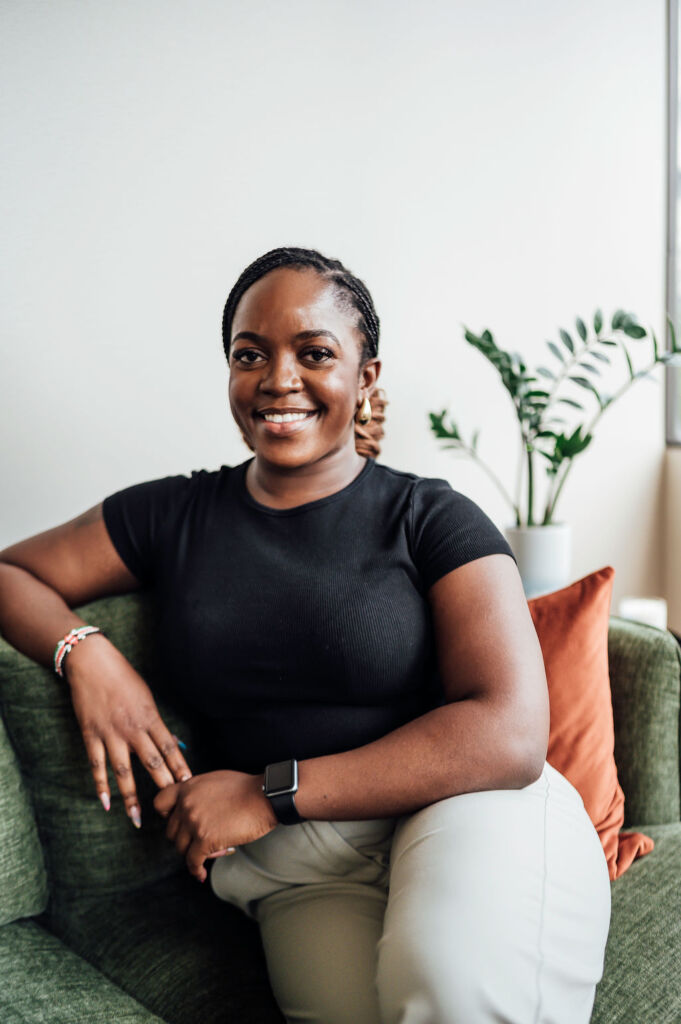
Beth Luvisia, LMSW
As a therapist, my passion lies in creating a safe and empowering space for BIPOC individuals to navigate the complexities of life and embrace their authentic selves. I understand the challenges that can arise from intergenerational trauma, complex family dynamics, and resilience fatigue, and I’m deeply committed to helping my clients develop the skills and insights they need to heal and thrive.
Growing up in Kenya, where mental health is often stigmatized, played a significant role in shaping my therapeutic approach; witnessing the impact of limited mental health resources on my own community instilled in me a deep commitment to providing culturally sensitive and accessible care.
I’m a Licensed Master of Social Work (LMSW) in Texas, and I offer individual counseling both in person at our Houston location and online via telehealth for clients residing in Texas. I specialize in helping individuals overcome a wide range of challenges, including perfectionism, life transitions, anxiety, and trauma, with a particular focus on intergenerational and racial trauma, which often disproportionately affect BIPOC communities.
In my practice, I believe in the power of lived experiences. I use a collaborative approach to help my clients cultivate awareness of their strengths and navigate the world through a new lens. My goal is to provide a safe, non-judgmental space where you can explore your feelings, share your experiences, and feel truly seen and heard.
I believe that you are the expert in your own life. My role is to meet you where you are, walk alongside you on your healing journey, and empower you to uncover your own insights and strengths. I strive to create a space where you can fully express yourself, gain clarity, and find the courage to navigate your challenges and create the life you desire.
If you’re ready to embark on a journey of self-discovery and healing, I’m here to support you every step of the way.
A little more about me.
My approach to therapy is rooted in psychodynamic and attachment principles. I help clients understand how their early relationships and experiences may have influenced their current challenges. By exploring these early experiences, we can gain insight into how they inform their current relational patterns. Recognizing these cyclical behaviors allows us to build healthier and more transformative connections.
I also utilize the Liberation Health Model to help clients understand how their personal challenges are often linked to broader societal and systemic issues. This model is grounded in the belief that individual well-being cannot be fully achieved without addressing the external factors that impact our lives. Additionally, I incorporate aspects of attachment theory to recognize the impact of attachment styles on interpersonal dynamics, and I use strength-based approaches and cognitive-behavioral techniques to provide practical skills and strategies. These combined approaches aim to empower clients, offering tools to manage challenges and foster personal growth.
- Person-Centered Therapy
- Attachment Based Therapy
- Humanistic
- Liberation Health Model
- Psychodynamic Approach
- Strength Based Approach
- Trauma-informed Approach
- Culturally-informed Approach
